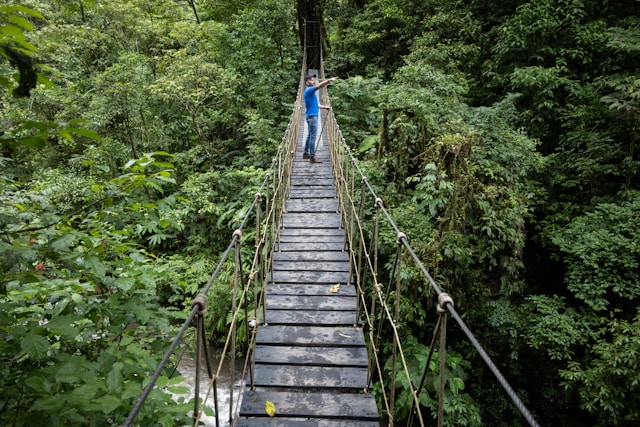
Eco-Tourism | Greenwashing In The Travel Industry
Ecotourism has, alongside ongoing sustainability movements, become an increasingly prominent mode of travel for ecologically-conscious vacationers. There remains, however, controversy surrounding the actual implications of ecotourism – for example, is ecotourism really environmentally friendly or is it all just one big marketing ploy?
An oxymoron in its own right, the term ecotourism seems to stand as a contradictory measure; how can something systematically bad for the environment be considered ecological?
The travel and tourism industry is among the fastest-growing sectors in the world. In 2022, tourism accounted for over 22 million new jobs, with a market value expected to surpass $299 billion by 2026. Coincidentally, tourism is also one of the lead contributors to mounting climate concerns, responsible for an estimated 8% of the worlds’ carbon emissions, while simultaneously subjecting affected environments to extreme stress – for example, through habitat degradation, increased pollution, and wildlife dispersal.

The ecotourism movement – which has largely coincided with international sustainability campaigns – is a more recent phenomenon, through which specific tourist destinations or activities are advertised as, for all intents and purposes, “environmentally-friendly.” Eco-tourism, by general definition, consists “in traveling to relatively undisturbed or uncontaminated natural areas with the specific object of studying, admiring and enjoying the scenery and its wild plants and animals,” as well as any peoples or cultures that may inhabit said lands. Specifically, the movement relates to nature-based, “responsible” travel, taking an approach which, in theory, causes as little disruption to natural resources and beings as possible.

In practice, however, tourism is in many ways inherently problematic (particularly, from an ecological standpoint), and the notion of tourism as being in any way shape or form environmentally beneficial seems relatively misleading. Not only are extensive emissions and waste created in the name of any type of international travel, but any degree of human interaction with natural landscapes, animals, or plants runs the risk of negative consequences. Sure, there are certain measures or expeditions that may be less harmful — may emit less greenhouse gas, or lower levels of pollution — in comparison to standard touristic ventures. However, it is this air of comparison that yields the eco-tourist’s power; and ecotourism in and of itself is not necessarily an ecologically-assured process.
Furthermore, the rise of eco-tourism doubles as an inevitable vessel for greenwashing – or, feigned environmental sustainability claims. As environmentalism continues to become a central focus of tourism and other industries, companies are using misleading rhetoric to attract “environmentally-conscious” tourists, while not actually making any real sustainable commitments.
In 2023, a lawsuit was filed against the world renown Delta Air Lines, citing that the company’s “carbon-neutral” pledge was largely false and served as misleading advertisement. The lawsuit alleges that Delta, rather than actually taking steps towards reducing their environmental impact, has been fabricating carbon offsets, asking environmentally conscious travelers to pay phony offset premiums. This case represents the first major challenge to a U.S. airline regarding carbon neutrality claims and suggests a growing prioritization on sustainable tourism practice.
In another recent scenario, NGO Deutsche Umwelthilfe (DUH) took legal action against German-based TUI Cruises regarding, again, carbon-neutrality claims. The company has been alleged of greenwashing practices, as claims that the company will transition to carbon neutral by 2050 through the use of alternate fuels are unfounded. In fact, DUH believes there is no evidence to actually suggest that, by 2050, there will even be sufficient enough amounts of green methanol and other fuels to actually run the vessels.

Of course, there are also some benefits to tourism and the prospect thereof. Some countries and conservation spaces depend on tourism-generated funding. And there is an element of cultural and environmental awareness that comes with global travel. So, if traveling is your intention, make sure to carefully research appropriate destinations, and remember not to be fooled by ecotourism attractions or notions.
TIPS:
- Stay away from companies that throw around terms like “eco-friendly” or “sustainable” without further explanation into how their service is actually sustainable
- Look for trusted certifications – for example, Earthcheck and BCorp
- Learn about the companies’ employment practice and ensure they are employing local community members
- Seek out tours with a “Leave No Trace” policy
- Look for companies where generated profits are being reinvested back into conservation or local communities
- Ask questions ! Inquire about policies surrounding waste and resource consumption
Highlight Image: © Unsplash, Kyle Pearce
+ Words:
Tori Palone
Luxiders Magazine








